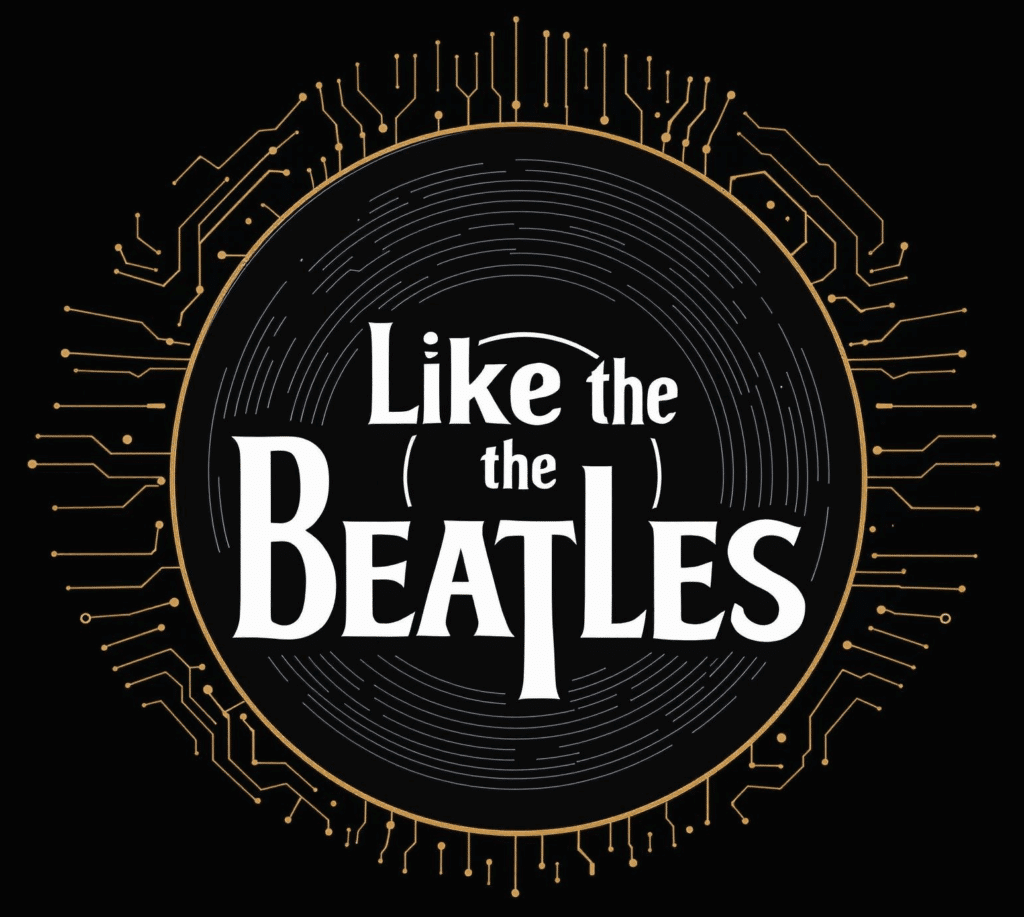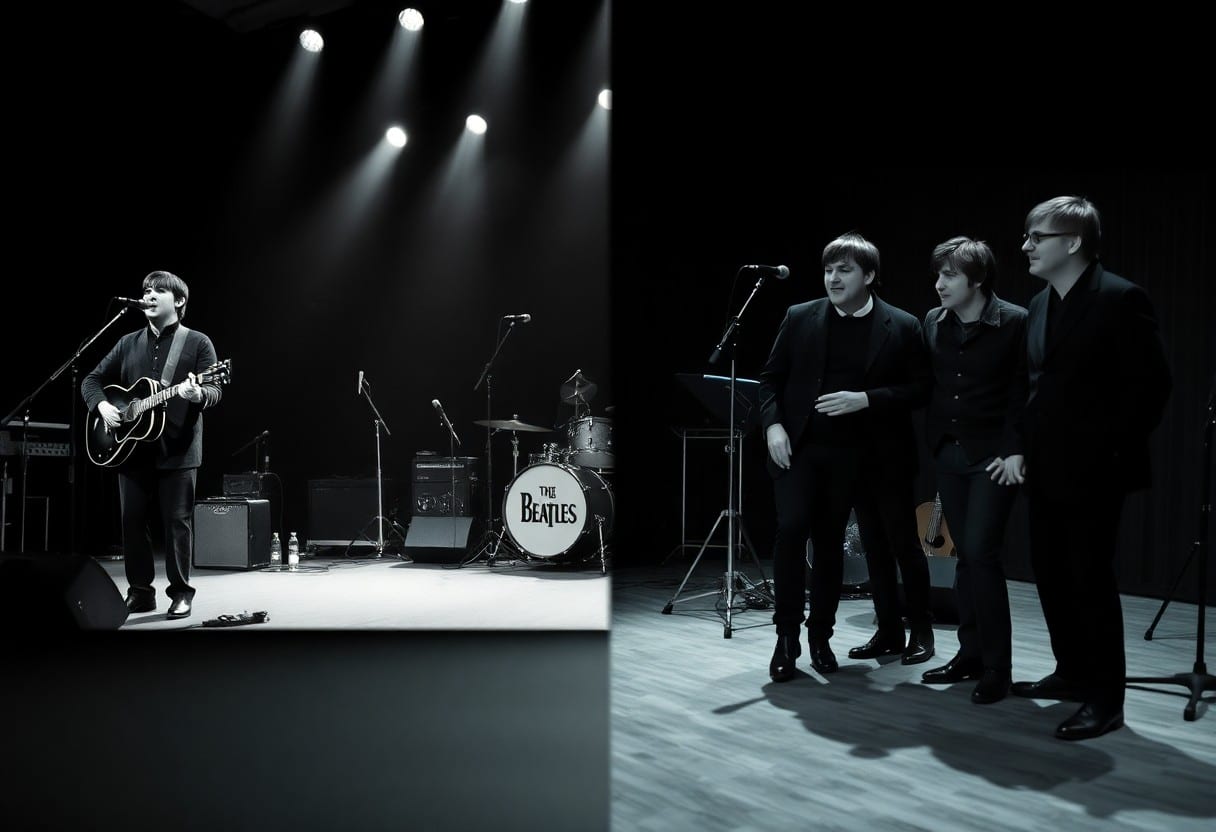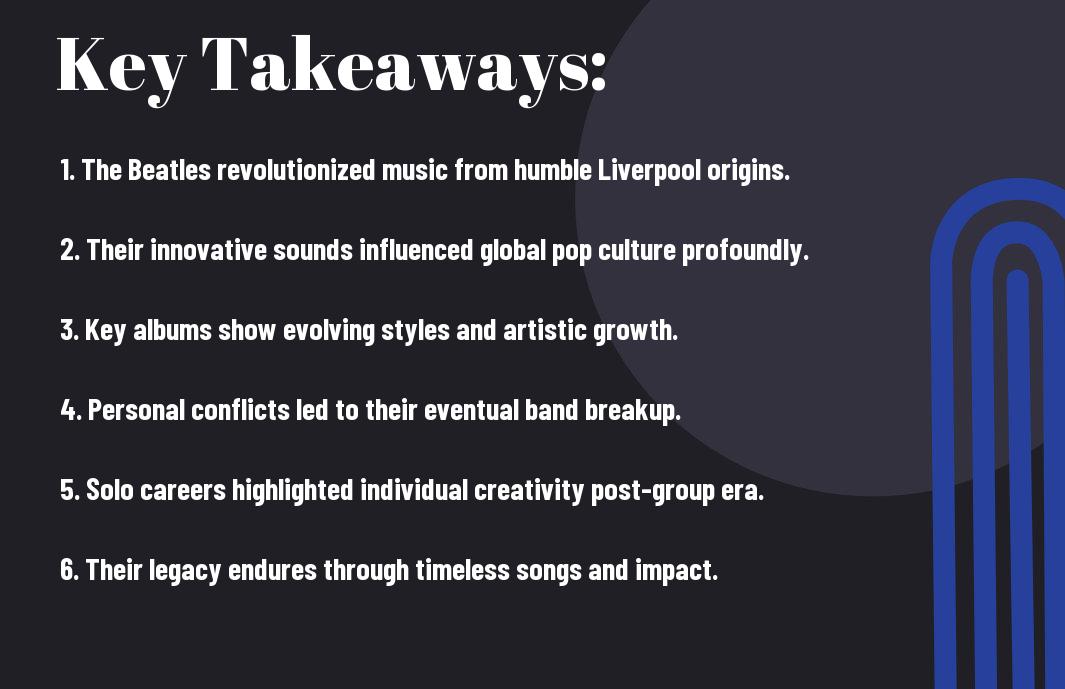With a legacy that continues to resonate across generations, I invite you to explore the incredible journey of The Beatles, from their modest beginnings in Liverpool to their complex final days together. You’ll discover their transformative impact on music, culture, and society, while also uncovering the drama, triumph, and challenges they faced along the way. Join me as we examine into the stories behind their iconic albums, legendary performances, and the personal struggles that shaped their trajectory, solidifying their status as timeless icons.
The Early Days
Your journey into the world of The Beatles begins in the 1950s Liverpool, a time when music was rapidly evolving, and a group of ambitious young men ignited the spark that would change the landscape of popular music forever. With their roots in rock and roll, skiffle, and a shared passion for songwriting, these musicians were destined for greatness, unaware that they were about to launch on a path that would influence countless artists in the decades to come.
Formation of the Band
For John Lennon, Paul McCartney, George Harrison, and later Ringo Starr, the early days forged lasting bonds and musical chemistry that would soon take the world by storm. Initially formed by John and Paul in 1957, they began performing in various Liverpool venues and refining their sound, ultimately inviting George to join as the lead guitarist. Ringo’s addition completed the lineup in 1962, solidifying their signature harmony and energy.
Rise to Fame
Beside their relentless rehearsals and performances, The Beatles gained traction through connections in the music industry, leading to their first recording contract with EMI. Their debut single, “Love Me Do,” released in 1962, marked the start of an incredible journey towards global super-stardom. The band’s infectious energy and unique sound captured the hearts of millions, transforming them into a household name practically overnight.
Band members experienced a meteoric rise that was both exhilarating and overwhelming. They achieved immense commercial success, with chart-toppers flooding the airwaves. Their outrageous hairstyles and charm made waves in popular culture, leading to the phenomenon known as “Beatlemania.” However, this newfound fame also came with challenges, such as intense media scrutiny and pressures of constant touring. Nonetheless, the sheer creativity and ambition of The Beatles propelled them to the forefront of the music scene, establishing a legacy that continues to endure today.
The Beatlemania Era
Some might argue that Beatlemania was more than just a fan frenzy; it was a global phenomenon that revolutionized the music industry. This era marked the explosive rise of The Beatles, who captured the hearts of millions with their infectious energy and groundbreaking sound. Their live performances set the stage for a new era in rock music, transforming the way bands interacted with fans and setting the bar for the future of live music.
Iconic Hits and Albums
Across their discography, The Beatles crafted a collection of iconic hits and albums that defined an era. Songs like “I Want to Hold Your Hand,” “Help!” and the groundbreaking album “Sgt. Pepper’s Lonely Hearts Club Band” showcased their evolution as artists, pushing musical boundaries and exploring various genres. Their ability to constantly innovate kept fans enthralled and eager for more, solidifying their place in music history.
Impact on Popular Culture
Behind the music, The Beatles profoundly influenced popular culture, shaping fashion, attitudes, and even social movements of the 1960s. They became symbols of a generation, representing a blend of youthful rebellion and social consciousness that resonated with fans worldwide.
In fact, The Beatles’ impact transcended music; they were a cultural catalyst that paved the way for changes in fashion, politics, and social norms. Their distinctive style set trends that continue to influence fashion today, while their music often tackled social issues, inspiring movements towards peace and love. With their newfound fame, they also challenged the status quo, urging their audience to embrace change and fight for equal rights. The Beatles were not just musicians; they were a vital part of a cultural revolution that forever altered the landscape of modern society.
Evolution of Sound
Now, let’s probe into how The Beatles’ music transformed over the years, blending various genres and styles to create a distinctive sound. Starting from their early rock and roll roots, they evolved, pushing boundaries and embracing new musical influences that reflected the changing cultural landscape of the 1960s, giving birth to a rich and varied soundscape.
Experimentation and Innovation
Any examination of The Beatles reveals their penchant for pushing musical boundaries, incorporating unique arrangements and diverse instruments. Their willingness to experiment with sounds led to iconic tracks that forever altered the music landscape, offering listeners an ever-evolving experience.
The Influence of Eastern Music
About The Beatles’ journey into Eastern music, I find it fascinating how they incorporated different cultural elements into their work. Their fascination with Indian instruments and philosophies not only broadened their sonic palette but also introduced audiences to the rich tapestry of Eastern traditions.
Considering the impact of Eastern music on The Beatles, you’ll discover that their interest sparked a vibrant cultural exchange. They infused sitar melodies in tracks like “Norwegian Wood,” which showcased the beauty of Indian music and made it mainstream. This exploration set the stage for a broader appreciation of diverse sounds, encouraging not just their fans but also artists worldwide to look beyond conventional Western rhythms. The openness to experiment with Eastern influences marked a pivotal transition in their music, reflecting a profound evolution that resonated with listeners across generations.
The Later Years
All throughout their career, The Beatles evolved and adapted, but their later years marked a period of creative experimentation and emotional complexity. During this time, I often refer to A Timeline for Every Studio Album Produced by The Beatles to appreciate how far the band had come and the lasting impact of their music.
Changes in the Lineup
Across their later years, the dynamic of The Beatles shifted, notably with the departure of Brian Epstein, their manager, who played a pivotal role in their ascent to fame. This change affected not only their public image but also their creative process and internal relationships.
Major Releases and Tours
Later in their career, The Beatles produced some of their most iconic albums, like “Sgt. Pepper’s Lonely Hearts Club Band” and “The White Album”, reflecting their growth and experimentation. Tours became less frequent as they focused on studio work, opening a new chapter that defined their legacy.
Also, as I investigate into the touring and release history, I find it remarkable how their music evolved with societal changes. After the infamous 1966 tour, where John Lennon’s comments sparked controversy, the band opted for a more studio-centric approach. This decision led to the production of groundbreaking works that explored diverse musical styles, demonstrating their relentless pursuit of innovation, even in the face of personal challenges.
The Breakup
Keep in mind that the breakup of The Beatles was a pivotal moment in music history. While the band had enjoyed unprecedented success and a massive following, underlying tensions and personal issues led to their disbandment in 1970. This marked not just the end of an iconic era but also a significant turning point in the world of popular music.
Reasons Behind the Split
Above all, the reasons for The Beatles’ split can be attributed to various factors, including creative differences, individual aspirations, and personal conflicts among the band members. The death of their manager, Brian Epstein, further complicated the situation, leaving them without clear direction, ultimately causing tensions to boil over.
Aftermath and Solo Careers
Careers of each member took a distinct turn after the breakup, showcasing their individual talents. John Lennon examined into political activism alongside his music, while Paul McCartney embraced a more melodic pop sound. George Harrison’s prolific songwriting flourished, and Ringo Starr found success in both music and acting.
Considering the aftermath of The Beatles’ breakup, it was a time of both loss and opportunity for the band members. Each artist ventured into solo careers that allowed them to experiment with diverse styles and themes. Paul McCartney created hit albums with Wings, while John Lennon’s solo work often revolved around political activism and personal introspection. George Harrison’s solo album, “All Things Must Pass,” marked a significant success, showcasing his deep spirituality and musical prowess. Ringo Starr found his niche in the industry, contributing to various projects as well. Each member’s post-Beatles journey reflects their desire for personal growth and artistic expression, ultimately enriching the musical landscape.
Legacy and Influence
For over half a century, The Beatles have left an indelible mark on music and culture. Their innovative songwriting, groundbreaking recording techniques, and cultural relevance have inspired generations of artists and fans alike. As I explore their legacy, it becomes clear how their influence continues to shape and redefine various aspects of the music industry and beyond.
Lasting Impact on Music
Above all, The Beatles redefined the landscape of modern music. By blending genres such as rock, pop, and experimental sounds, they created a diverse and rich musical palette that influenced countless musicians. Their mastery of the studio as an instrument allowed them to push creative boundaries, paving the way for genres like indie rock and even punk.
The Beatles in Modern Culture
Between their groundbreaking music and iconic persona, The Beatles have maintained a significant presence in modern culture. They continue to inspire artists, shape fashion trends, and even resonate in political activism. Their messages of love, peace, and unity remain vital in today’s social landscape, transcending generations.
Influence extends beyond music as The Beatles have permeated various aspects of popular culture. In film, their movies and documentaries provide insight into their lives while introducing new audiences to their artistry. Merchandising featuring their image and lyrics remains ubiquitous, showcasing their cultural relevance across generations. Even in social media discussions, I often see references to their music as benchmarks or relatable quotes. All of this highlights how The Beatles’ legacy is not just enduring but *thriving* in today’s world, impacting everything from *art* to *politics*.
Summing up
As a reminder, my exploration of The Beatles’ remarkable journey highlights not only their origins and evolution but also the lasting impact they’ve had on music and culture. From their humble beginnings in Liverpool to their iconic status, their artistry continues to resonate with generations. I encourage you to reflect on how their innovative sounds and timeless messages have shaped your understanding of music and its power. The Beatles’ legacy shows us that great art can transcend time and remain relevant, inspiring countless artists and fans alike.












